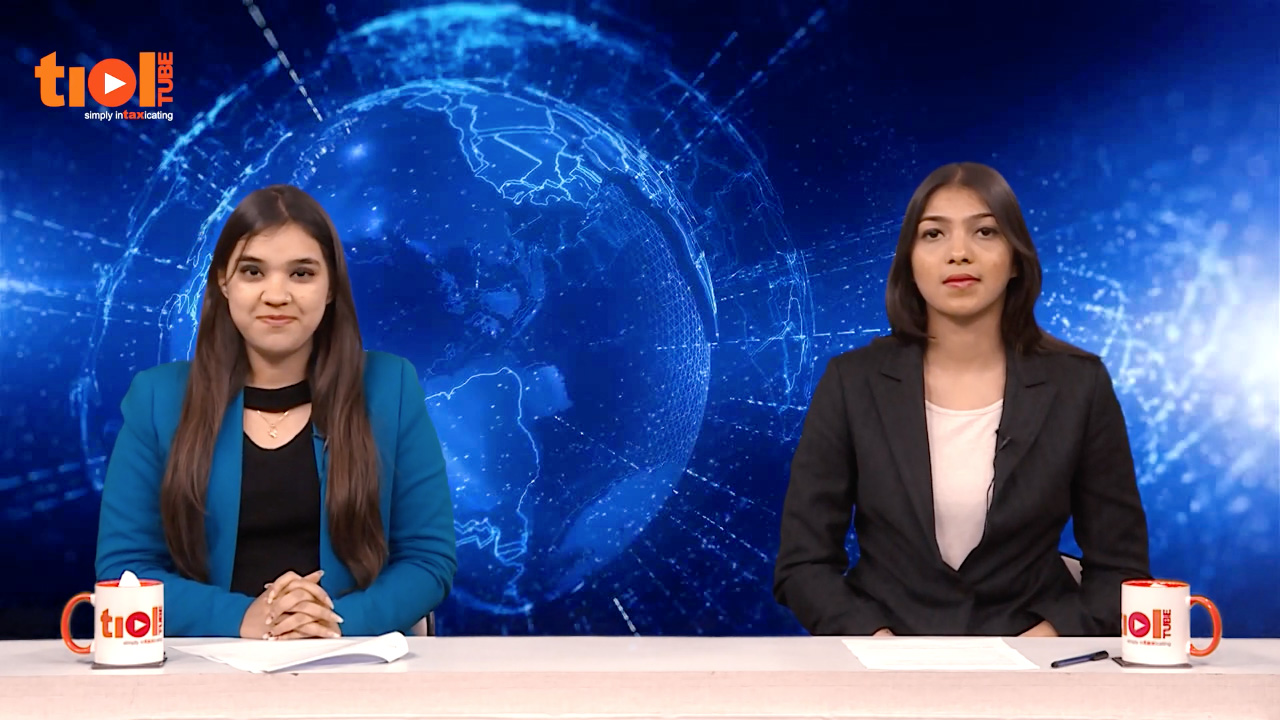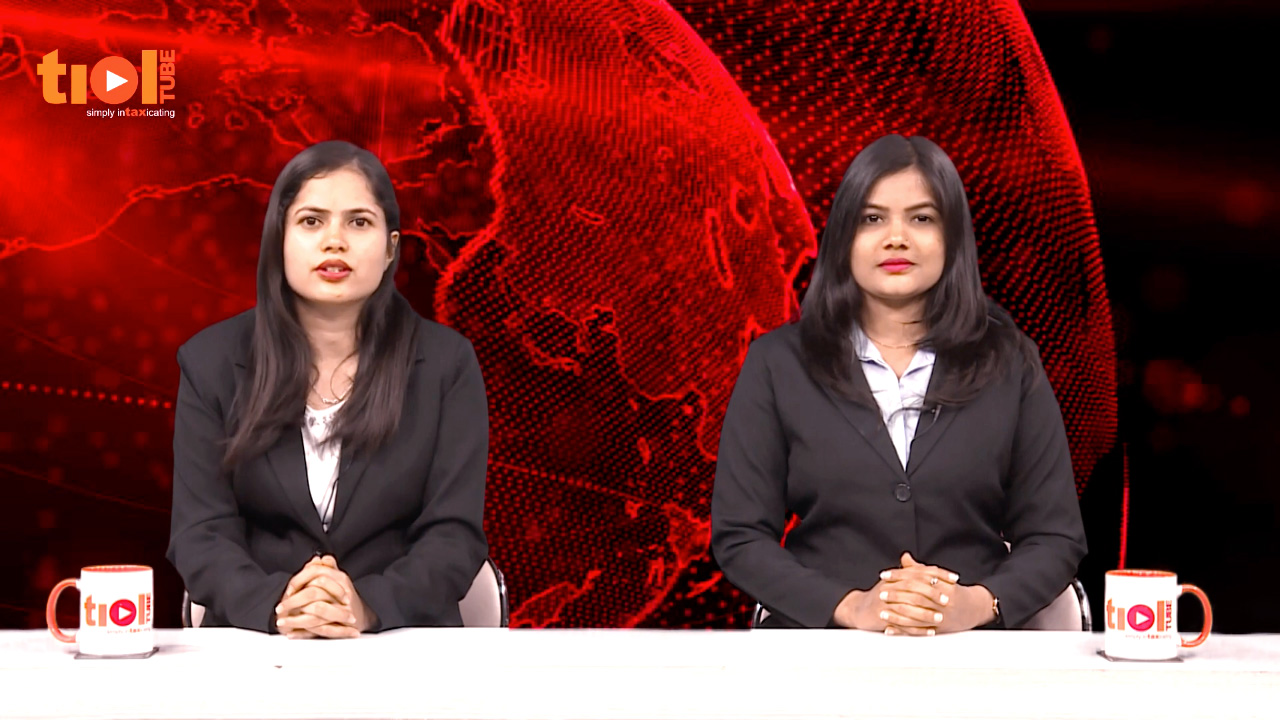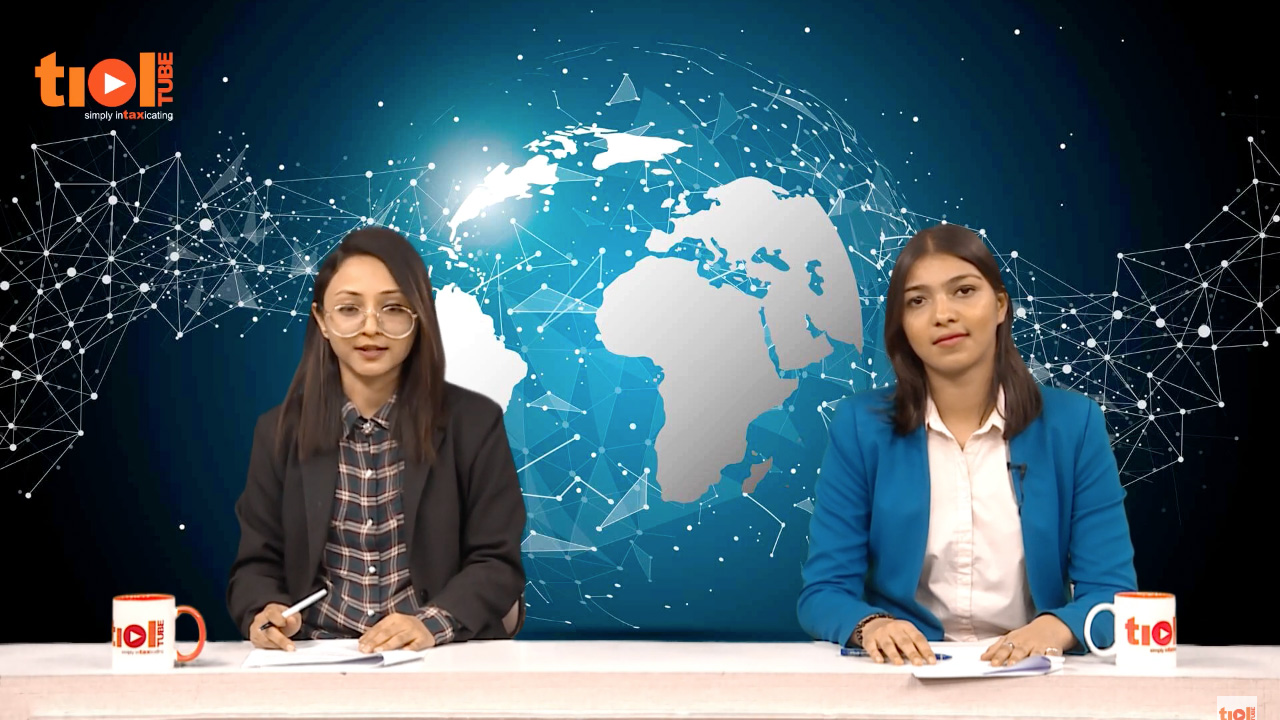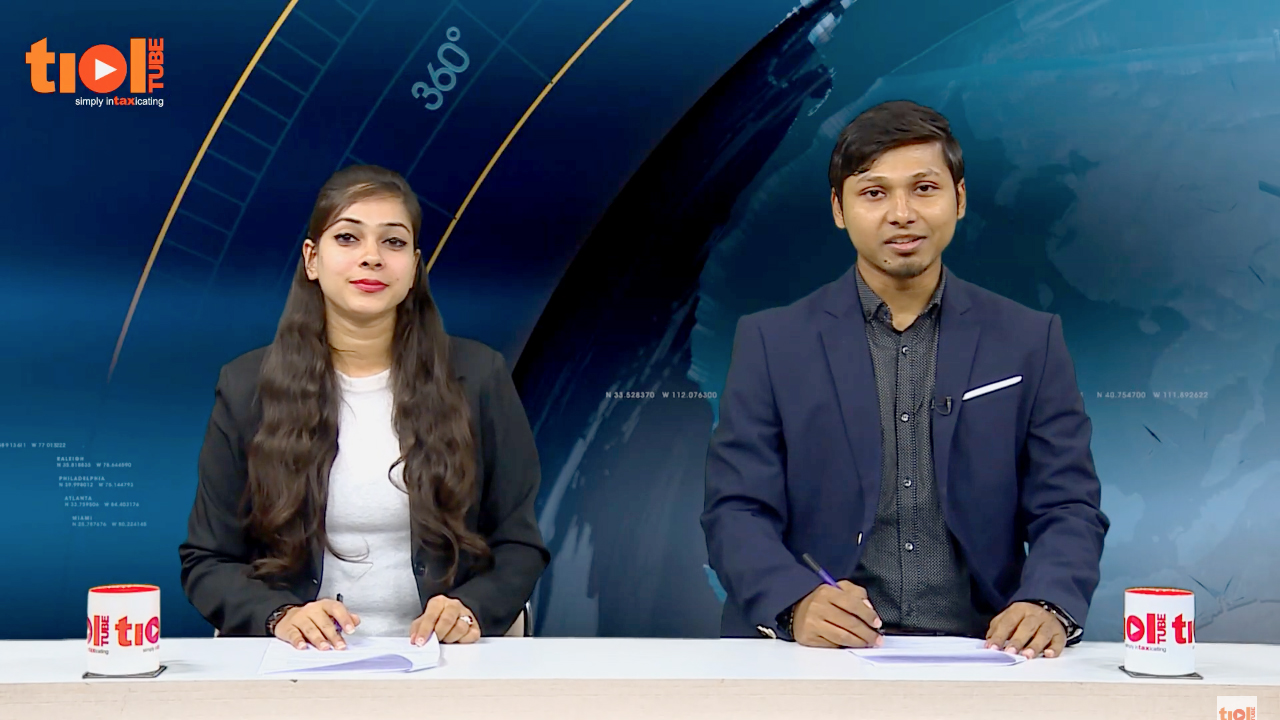| SERVICE TAX 2020-TIOL-22-CESTAT-MUM
Conwood Agencies Pvt Ltd Vs Commissioner of CGST
ST - The assessee filed a refund claim of amount paid as service tax which had erroneously been paid by it - The assessee claimed that the duty liability was to be discharged by another entity as per CBEC Circular - Such refund claim was rejected by the adjudicating authority - On appeal, the Commr.(A) sustained such findings - Hence the present appeal. Held - The assessee collected service tax paid by it from its customer - It is settled law that once the assessee has passed on the burden of the service tax paid to its customer, the amount of tax even paid erroneously cannot be refunded to it - There is no provision of law for transferring the amount from the account of registered tax payer to the account of another tax payer from whom such tax amount is actually due - Even otherwise the amount, which had been paid by the assessee as tax which was not due from them but has been collected by them from customers, will have to be credited to the Consumer Welfare as per Section 11B, and cannot be retained as Service Tax in Consolidated Fund - Hence the refund claim cannot be allowed: CESTAT
- Assessee's appeal dismissed: MUMBAI CESTAT
CENTRAL EXCISE
2020-TIOL-24-CESTAT-KOL
P C Chanda And Company Pvt Ltd Vs CCE
CX - Issue is whether the goods (industrial paints) are classifiable under chapter heading 2715 00 90 as done by the Department or chapter heading 3208 10 90 which the assessee has chosen.
Held: On perusal of the impugned order, it is found that the letter dated 7.12.2015 issued by the Asstt. Commissioner, Kalyani Division, has not been dealt wherein it is stated that the subject goods manufactured by the appellant assessee is classifiable under chapter heading 3208 10 90 - it is also noted that in the said letter, a specific reference has been made by the Asstt. Commissioner to the examination report issued by the National Test House - justice would be met if the matter is re-examined by the Commissioner duly considering the contents of the aforesaid letter issued by the Asstt. Commissioner - while re-examining the classification, the Commissioner will specifically deal with the test reports considered in the said letter of the Asstt. Commissioner - the appeal is thus allowed by way of remand: CESTAT [para 7]
- Matter remanded: KOLKATA CESTAT
2020-TIOL-23-CESTAT-AHM
CCE & ST Vs Joyrath Projects Pvt Ltd
CX - Contention of Revenue is that MS Pipes/Tubes manufactured at 12th cargo berth site of Kandla Port Trust, Kandla and cleared by the respondent is an intermediate product for Pile Liners and, therefore, is not exempted for the period prior to issuance of Notification No. 41/2011-CX dated 18.11.2011 - Adjudicating Authority dropped the demand on the ground that the pile liners fabricated at site of construction were used at the marine site, is exempted vide Notification No. 23/2011-CE (NT) dated 01.12.2011 - Revenue is in appeal against this order.
Held: Bench notes that by issue of Notification No. 23/2011-CE (NT) dated 01.12.2011, under Section 11C of the Act with retrospective effect, the goods falling under Chapter heading 7305 are clearly exempted, therefore, the Revenue's appeal has no substance - impugned order upheld and appeal is dismissed: CESTAT [para 4]
- Appeal dismissed: AHMEDABAD CESTAT
CUSTOMS
2020-TIOL-26-HC-MAD-CUS
Gemini Edibles and Fats India Pvt Ltd Vs UoI
Cus - The assessee-company is engaged in the manufacture & marketing of edible oils and fats - Importing goods is part and parcel of the assessee's activities ordinarily attracting Customs duty - The assessee off-set such customs duty by procuring scrips under the MEIS and SEIS provided under the FTP - The present writ petitions were filed to assail orders passed by the adjudicating authority whereby the assessee was informed that BCD of 45% and Social Welfare Surcharge of 4.5% of the goods imported was debited from scrips and no excess duty was collected, on account of which no question of refund would arise - The petitioners also sought to quash 193 BoEs on account of their being contrary to law and that the Revenue authorities be directed to re-credit the Social Welfare Surcharge component in all the MEIS/SEIS duty credit scrips of the assessee, from which such surcharge was deducted - It further sought to restrain the Revenue from debiting any amount pertaining to Social Welfare Surcharge from the MEIS/SEIS duty scrips and from debiting any amount pertaining to BCD, over the prescribed rate on all future imports.
Held: The issue pertaining to the nature of levy of Social Welfare Surcharge is no longer res integra in view of the decision of the Apex Court in M/s Unicorn Industries - Later, in Union of India v. Modi Rubber Limited the Apex Court held that the duty on NCCD, Educational Cess and Secondary and Higher Education Cess are in the nature of additional duties imposed by different legislation for a different purpose - Considering the decision in M/s Unicorn Industries it is held that Social Welfare Surcharge levied u/s 110(3) of the Finance Act 2018 is an independent levy imposed and collected under a different enactment, namely the Finance Act 2018 - Hence the Social Welfare Surcharge is intended totally for a different purpose and is not taking the color of the parent levy: HC
Held: It is true that Notfn Nos 24/2015 and 25/2015 dated 08.04.2015 contemplate that the goods when imported into India against the duty credit scrips are exempted from the whole of duty of customs and the whole of the additional duty leviable thereon - A conjoint reading of Clause 3.02 of the Foreign Trade Policy and the subject matter notifications will not give any room for doubt as to whether or not the duty is collected from the assessee - The duty credit scrips can be used for payment of Basic Customs Duty, additional customs duty and payment of Central Excise duties and therefore, the purpose for which the duty credit scrips are given is evident and apparent, i.e., payment of Customs and Excise duties - It is to be noted at this juncture that the term but for exemption is to denote that the duty liable to be paid in cash, in view of exemption, is to be accepted by way of debiting such quantum of duty from the value of scrips - Therefore, it is evident that the exemption granted under the two notifications is only in respect of payment of customs duty in cash and on the other hand, such value of the customs duty is debited from the value of the scrips - Hence the adjustment of duty leviable and payable is an act of duty neutralisation and to see that the import duty component is neutralised - In simpler terms, Customs duty leviable & payable though deducted from the value of the scrips, in effect, no money representing the duty goes to the Govt exchequer: HC
Held: The main issue is not against the collection of Customs duty, but rather is against the collection of SWS too, by making debit out of total value of scrips along with the Customs duty - It remains to be seen whether the Revenue is jusitifed in making debit of Social Welfare Surcharge from the value of the scrips - The SWS is an indepedent levy levied & collected under the Finance Act 2018 - Notfn Nos 24/2015 and 25/2015 specifically entitle the Revenue to debit the duty of customs under the First Schedule to the Customs Tariff Act, 1975 and additional duties leviable thereon under Section 3 of the Customs Tariff Act, 1975 - Except for these, the two notfns do not empower the Revenue to debit any other levy or duty or surcharge or cess under the Customs Act or any other legislation - It is well settled law that exemptions notifications be construed strictly - Scope and ambit of exemption notifications cannot be enlarged or extended beyond its intend as specifically spoken to therein - A benefit given in an exemption notification must be confined only with such of those benefits referred to therein in strict sense and not to be extended beyond its scope - Thus, under the guise of interpreting an exemption notification, a benefit conferred on a person cannot be extended as an "undue benefit", which he is not entitled to otherwise under the notification - Hence the Revenue is not empowered to debit SWS from an out of the value of scrips apart from debiting the duties leviable on the subject goods: HC
Held: The petitioner is liable to pay the appropriate ocial Welfare Surcharge on Basic Customs Duty in respect of the imported goods - But recovery of Social Welfare Surcharge cannot be done by making debit from the value of the scrips produced by the assessee as SWS is not subject matter of exemption granted under Notfn No 24 and 25/2015 - The Revenue is thus liable to re-credit the value of SWS so far debited from scrips held by the assessee, conditional on the assessee paying such SWS within 4 weeks' time: HC
- Writ petitions partly allowed: MADRAS HIGH COURT
2020-TIOL-21-CESTAT-MUM
Parshav Alloys Vs CC
Cus - Assessee have filed Bill Of Entry for clearance of goods declared as Cold Rolled Stainless Steel Secondary/ defective sheets cutting pieces Grade 321, Hot Rolled Stainless Steel Secondary/ defective sheets cutting pieces Grade 304 with declared assessable value - The goods were found to be misdeclared with respect to description with an intention to undervalue the same and also to avoid payment of Anti Dumping Duty as per Notfn 104/2011 - The case of misdeclaration of goods is based on examination of goods and the statement of Director of assessee - At the time of investigations i.e. examination of the goods or during the time when the statement of Shri Kanungo was being recorded, not even a single word in respect of Mill Test Certificate was stated - Further, the Mill Test Certificates produced are the certificates not issued by supplier to them, but are from certain manufacturing facility located in Belgium to the suppliers of good - There is nothing on record to co-relate the same with goods imported as these were not produced with the import documentation nor find any mention on said documents - Even Shri Kanungo has in his statement referred to the existence of any such Mill Test Certificates - Hence, no substance found in the submissions of assessee in this respect specifically when mis-declaration of the goods has been admitted by them - The Supreme Court has in case of Surjit Singh Chabbra - 2002-TIOL-158-SC-CUS held that confiscation made by the person in his statement recorded under Section 108 will bind the person making such confession - The charge of misdeclaration of goods is upheld - Since the goods have been misdeclared they are liable for confiscation under Section 111 (m) of Customs Act, 1962 and assessee is liable for penalty under Section 112(a) ibid - The redemption fine and penalty imposed is excessive, thus both are reduced: CESTAT
- Appeal partly allowed: MUMBAI CESTAT | 







